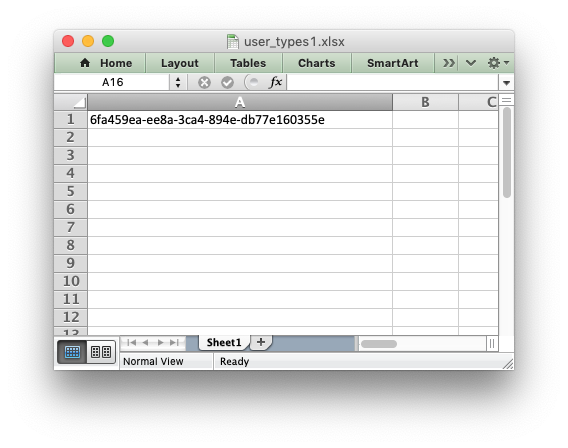Example: Writing User Defined Types (1)#
An example of adding support for user defined types to the XlsxWriter
write() method using the add_write_handler() method.
This example takes UUID data and writes it as a string by adding a callback
handler to the write() method. A UUID data type would normally raise a
TypeError in XlsxWriter since it isn’t a type that is supported by Excel.
See the Writing user defined types section for more details on how this functionality works.

##############################################################################
#
# An example of adding support for user defined types to the XlsxWriter write()
# method.
#
# SPDX-License-Identifier: BSD-2-Clause
# Copyright 2013-2024, John McNamara, jmcnamara@cpan.org
#
import xlsxwriter
import uuid
# Create a function that will behave like a worksheet write() method.
#
# This function takes a UUID and writes it as as string. It should take the
# parameters shown below and return the return value from the called worksheet
# write_*() method. In this case it changes the UUID to a string and calls
# write_string() to write it.
#
def write_uuid(worksheet, row, col, token, format=None):
return worksheet.write_string(row, col, str(token), format)
# Set up the workbook as usual.
workbook = xlsxwriter.Workbook("user_types1.xlsx")
worksheet = workbook.add_worksheet()
# Make the first column wider for clarity.
worksheet.set_column("A:A", 40)
# Add the write() handler/callback to the worksheet.
worksheet.add_write_handler(uuid.UUID, write_uuid)
# Create a UUID.
my_uuid = uuid.uuid3(uuid.NAMESPACE_DNS, "python.org")
# Write the UUID. This would raise a TypeError without the handler.
worksheet.write("A1", my_uuid)
workbook.close()